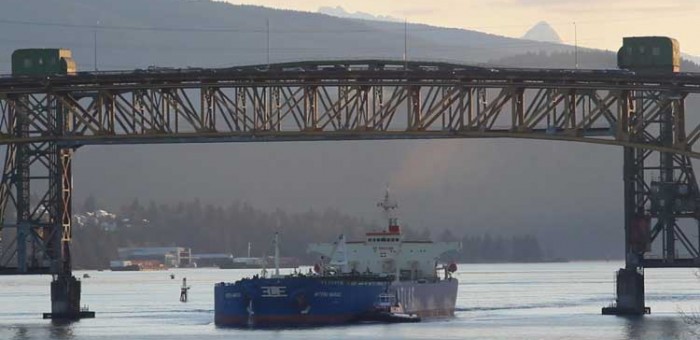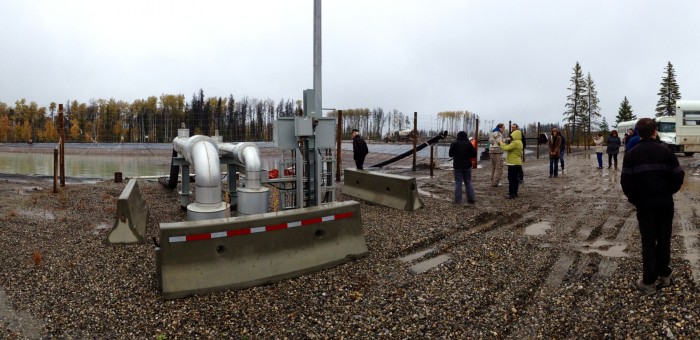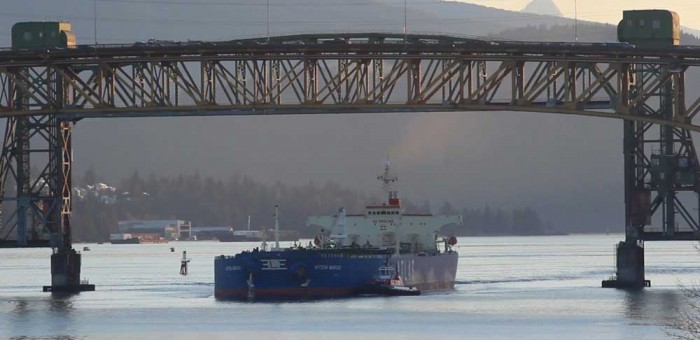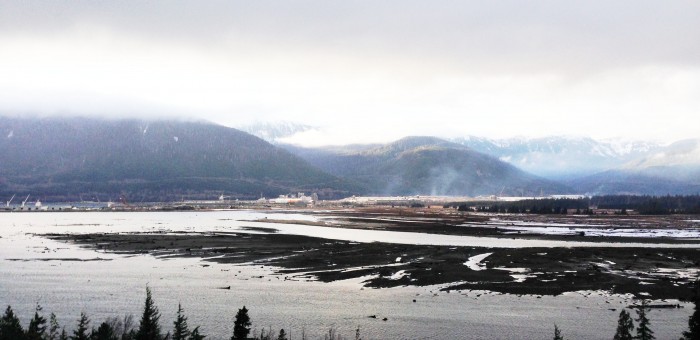Energy and Mines
Motion to Amend the Fall 2014 Throne Speech
Today I rose in the legislature to give the required two day’s notice that I will bring forward an amendment to the Throne Speech. Delta South Independent MLA Vicki Huntington seconded my notice of motion.
When I speak to the Throne Speech, and subsequently the amendment on Thursday, I will outline an alternative vision for diversified, sustainable, 21st century economy.
Notice to Amend Motion
Be it resolved that the motion “We, Her Majesty’s most dutiful and loyal subjects, the Legislative Assembly of British Columbia, in session assembled, beg leave to thank Your Honour for the gracious speech which your Honour has addressed to us at the opening of the present session,” be amended by adding the following:
And that the Legislative Assembly of British Columbia accepts the responsibility of demonstrating the leadership to choose growth, to move forward and create a legacy for our children, but also recognizes that this leadership means not gambling our future prosperity on a hypothetical windfall from LNG, and instead supports the development of a diversified, sustainable, 21st century economy.
NEB Ruling on Adequacy of Trans Mountain’s Answers Deeply Troubling
Media Statement: October 1, 2014
National Energy Board Ruling on Adequacy of Trans Mountain’s Answers Deeply Troubling
For Immediate Release
Victoria B.C. – Dr. Andrew Weaver, MLA for Oak Bay-Gordon Head and Deputy Leader of the B.C. Green Party is calling the National Energy Board’s ruling on the adequacy of Trans Mountain’s answers “deeply troubling”.
After weeks of anticipation, the National Energy Board handed down its ruling on the adequacy of Trans Mountain’s answers to intervenors’ first round of information requests on the details of the pipeline proposal. Roughly 50 intervenors challenged more than 2,000 responses that they were given by Trans Mountain on the basis that those responses were incomplete and inadequate. In the end, the NEB ruled in favour of only a very small fraction (less than 5%) of intervenors’ requests for better answers.
“In the case of my submission, I challenged more than 100 incomplete and inadequate answers,” says Weaver. “To be clear, I wasn’t challenging answers that I disagreed with. I was challenging answers that simply did not respond to my questions. Yet despite this, the National Energy Board still only ruled in my favour four times.”
As a part of the first round of information requests, Dr. Weaver submitted nearly 500 questions on a variety of topics, including the risks and impacts of a potential oil spill, Trans Mountain’s ability to clean up such a spill and the extent to which the public on Southern Vancouver Island was consulted about the pipeline proposal.
One of Weaver’s key areas of concern is the apparent contradiction arising from land-based tank experiments conducted by Trans Mountain and those undertaken independently by the federal government. According to a federal government report published in November 2013, diluted bitumen has the potential to sink when it mixes with suspended sediments. Trans Mountain’s experiments were conducted in the absence of suspended sediments. “One thing we have no shortage of in our coastal waters is suspended sediments” notes Weaver. “Next time you travel on a BC ferry from Swartz Bay to Tsawwassen, have a look at the water. Water originating from the Fraser River has a very distinct milky colour associated with its high sediment content.”
Identifying whether or not diluted bitumen sinks is essential for determining whether or not we have the capacity to respond to a spill. BC government reports have made it clear that we currently don’t have the capacity to respond to a submerged oil spill and Trans Mountain has not proposed any measures to address this gap.
In its ruling, National Energy Board concluded that Dr. Weaver’s attempts to address the contradictory evidence “would not contribute to the record in any substantive way”.
“That the NEB can say that questions on the science underpinning whether Trans Mountain can even respond to an oil spill are not a ‘substantive’ contribution to the record should be alarming for all British Columbians,” says Weaver. “This is an unfortunate ruling that puts our coastline at unnecessary risk. In the absence of an opportunity for cross-examination, it is decisions like these that make people seriously question the integrity of the entire hearing process.”
-30-
Media Contact
Mat Wright – Press Secretary, Andrew Weaver MLA
Mat.wright@leg.bc.ca
1 250 216 3382
Petronas LNG Announcement Highlights Need for Economic Backup Plan
Media Statement: September 25, 2014
Petronas LNG Announcement Highlights Need for Economic Back-Up Plan
For Immediate Release
Victoria B.C. – Andrew Weaver, MLA for Oak Bay-Gordon Head and the Deputy Leader of the BC Green Party, says that Petronas’ threat to call off its $10-billion LNG project is another clear demonstration that British Columbia desperately needs an economic back-up plan.
“We have a government that has gone all-in on LNG,” says Weaver. “We have an official opposition that is essentially parroting the government in an attempt to appear job-friendly. The fact is, Petronas’ announcement has made clear what neither the government nor the opposition is willing to admit: That the promise of a ‘generational opportunity’ in LNG is a pipedream and we desperately need a back-up plan for when it fails.”
Petronas’ CEO, Shamsul Abbas, said that the development of an LNG export industry in Canada was over 40 years behind the United States. His statement echoes the conclusions of a recent Peters and Company report that noted that the U.S. Gulf Coast is now likely the most efficient place to construct LNG facilities in North America. In fact, according to regulatory filings, it would cost roughly twice as much to construct a facility in Canada as it would to build one on the U.S. Gulf Coast.
Mr. Abbas was clear when quoted in the Financial Times: “Until investors cross the final investment line with an economically viable project, they remain just potential investors on paper”.
“I’ve been saying this since before the last election – the economics simply aren’t there for what the government is promising. It’s a race to the bottom to sell off our natural gas resources, at the expense of other opportunities.”
While, the government continues to double-down on LNG existing industries in B.C. have been neglected. A few years ago, B.C. was investing heavily in reliable, high-paying and up-and-coming sectors like the technology and renewable energy sectors. However with Premier Clark’s new singular focus on LNG, these sectors lack the certainty needed to continue to thrive. Anytime someone questions their approach, the government responds by saying “trust us.”
“We can no longer accept the government’s ‘trust us’ mantra on LNG development. Jobs and our economy are on the line here and British Columbians deserve to know that their government has a back-up plan for when the LNG dream fails.”
-30-
Media Contact
Mat Wright – Press Secretary, Andrew Weaver MLA
Mat.wright@leg.bc.ca
1 250 216 3382
Trans Mountain’s Oil Spill Economics
This post is part of an ongoing series in which MLA Andrew Weaver will be sharing key information from inside the National Energy Board hearings on Kinder Morgan’s Trans Mountain pipeline proposal. To see previous posts, please click here.
Trans Mountain’s Bold Claim
While reading through Kinder Morgan’s Trans Mountain pipeline application, my team was astonished to come across what has become one of the most talked about quotes from the entire 15,000 page application.
In discussing the impacts of oil spills, Trans Mountain tells us that “spills can have both positive and negative effects on local and regional economies.” Taking that point even further, they say that “spill response and clean-up creates business and employment opportunities for affected communities, regions, and clean-up service providers”
As you might predict, it didn’t take long for national and international news outlets to pick up on these quotes and for Trans Mountain to backtrack on their claims. According to them, the quote was taken out of context.
Given the serious and legitimate concerns we have about oil spills on our coast, I thought it was important to find out more about how Trans Mountain evaluated the potential economic impacts of a spill.
Requesting Trans Mountain’s Analysis
Now, let me first say that no economic benefits can justify the environmental catastrophe that a spill would cause. So many of our lifestyles, livelihoods and communities are based on the pristine coast we are so fortunate to have here in British Columbia. Not to mention the impact a spill would have on the environment itself, irrespective of our use of it. That is what makes Trans Mountain’s statement particularly troubling.
Yet, when it comes to this type of application, part of the process for weighing the costs and benefits of the pipeline also means analyzing the economic impact of a potential spill. Unfortunately, here’s what I found out from Trans Mountain:
In their entire 15,000 page application, Trans Mountain did not once adequately analyze the economic impact of a marine-based oil spill resulting from their project. Not only that, they told me they don’t need to do this. Here’s what they said:
“Economic cost-benefit analysis is an analytical tool sometimes used to inform whether a planned activity, policy or investment is beneficial to the economy and society. A spill is not a planned activity: it is an accident”. Therefore, “spills are not part of the economic benefits analysis undertaken for the project.”
If the economic impact of a spill is not analyzed in the application, then how can we know the true impact a spill would have on our local communities? And if we don’t know that, then how can we know the full extent of the risks we will be undertaking should this project be built?
A Look at the Research
Trans Mountain’s statement is based on what they say is a “growing body of literature” that “shows that both positive and adverse effects can occur” from a spill. So what does that literature say? According to one study:
“The McDowell Group (1990) report concludes that there are positive effects on spill-related business and certain business sectors such as hotels/motels, car/RV rentals, air taxi and boat charters offset negative effects on Vacation/Pleasure business.”
Most of these “positive effects” benefit businesses and sectors that help clean up a spill or that house temporary workers who would travel here to clean up a spill. Local economies, like our commercial fisheries or our tourism industry—an industry that thrives on the unique and unparalleled beauty of our natural surroundings—won’t be so lucky.
Not only that, but as it turns out, even this growing body of literature clearly demonstrates that the net overall effect of a spill is negative.
Of course, what Trans Mountain’s statements also ignore is the potentially catastrophic impacts a spill would have on the environment itself. There are few places in the world that offer as pristine a coastline and as beautiful an environment as we have here in British Columbia. To lose that to a spill would be simply devastating.
Trans Mountain’s failure to consider the full range of negative impacts that its pipeline could have on our local communities and on our environment reflects a mindset that is simply out of touch with the beliefs and values of countless British Columbians. It shows just how far Trans Mountain is from ever gaining the social license it needs to build its pipeline.
New airshed study is a “nail in the coffin” for government LNG dreams in Kitimat
Media Statement: July 18, 2014
New airshed study is a “nail in the coffin” for government LNG dreams in Kitimat
For Immediate Release
The new Kitimat Airshed study clearly shows that it is not possible to put four new LNG plants into the Kitimat airshed without “critical” impacts on human health according to Andrew Weaver, MLA for Oak Bay-Gordon Head and Deputy Leader of the BC Green Party.
“The B.C. Government is not painting a complete picture of the serious ramifications of this study,” says Andrew Weaver. “They are trying to paint what is actually a dire conclusion in good light to avoid undermining their LNG dreams. The study undeniably concludes that if you put four LNG plants into Kitimat you will have critical impacts on human health.”
The Kitimat Airshed Assessment study was commissioned by the B.C. Government to explore the impact that major industrial development would have on the Kitimat airshed. The study first considered the impacts of building four LNG plants and then considered the impacts of adding an oil refinery. It also considered various ways of mitigating toxic emissions.
The study concludes that even under the best case scenario with no oil refinery and with full treatment of Rio Tinto Alcan smelter emissions, four new LNG plants will raise sulphur dioxide levels to the point of causing “critical” risk to human health. Those plants will also increase nitrogen dioxide levels to the point of causing “high” risk to human health.
The study also concluded that the only way to avoid high or critical risk of aquatic ecosystem acidification is for all LNG plants to be powered by electric drives, for there to be no oil refinery and for the Kitimat smelter to implement a “full treatment” of emissions. The B.C. Government has already ruled out the possibility of electric-drive LNG plants, meaning it will be impossible to avoid high or critical levels of aquatic ecosystem acidification if four LNG plants are built.
“This is a nail in the coffin for the Government’s lavish LNG dreams in Kitimat,” says Weaver. “It is a thorough and excellent study and it is clear in its conclusions; the government simply cannot spin its way out of this. If you build those four LNG plants, they will put the people of Kitimat, Terrace and many other communities in the area at a critical risk to their health.”
-30-
Media Contact
Mat Wright – Press Secretary, Andrew Weaver MLA
Mat.Wright@leg.bc.ca
1 250 216 3382








